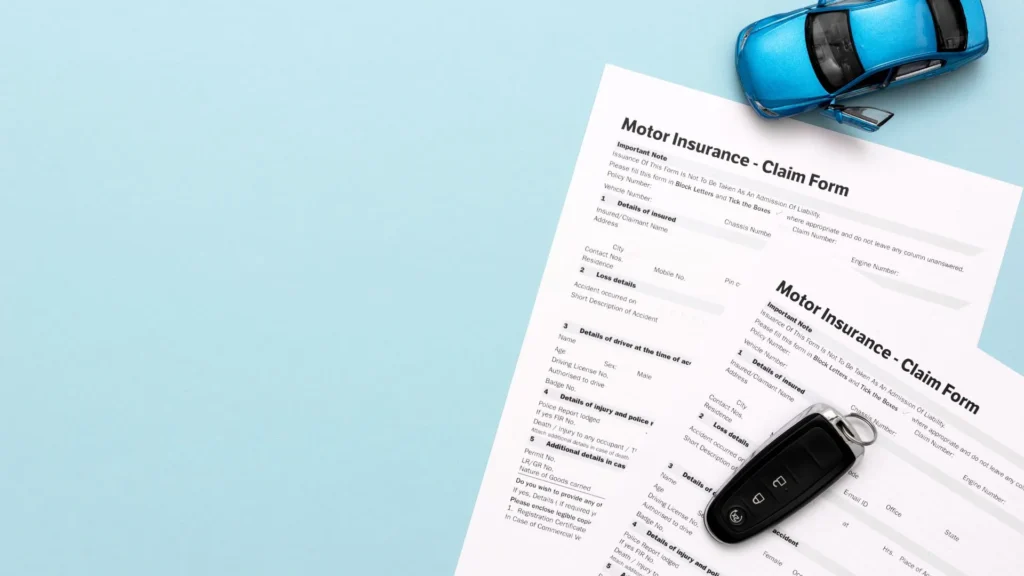Drivers getting speeding tickets have become commonplace across the United States today.
Regardless of the reason — whether you’re in a hurry or not paying attention — getting pulled over for speeding can be annoying and costly.
However, beyond the immediate financial penalty, many drivers may wonder, “Does a speeding ticket affect your insurance?” This comprehensive guide will explore how speeding tickets can impact your car insurance rates and find strategies for minimizing the fallout.
Does a Speeding Ticket Affect Your Insurance?
Yes, a speeding ticket can affect your car insurance in the US. Insurance companies view speeding as risky behavior that increases the likelihood of accidents. As a result, they often raise premiums for drivers with speeding violations on their record.
How Does a Speeding Ticket Affect your Insurance?
The impact of a speeding ticket on your insurance rates can vary significantly depending on numerous factors.
These include your driving history, your insurance provider, and the severity of the violation. A single minor speeding ticket might not lead to a substantial increase in your premiums. However, multiple infractions or serious speeding violations can have a more pronounced effect.
Speeding tickets are a red flag for insurance companies, signaling a higher risk of accidents. Because of this, premiums may be adjusted upon reviewing your record with such violations.
Typically, a speeding ticket leads to a 25% increase in car insurance premiums.
On average, those convicted of speeding pay $2,693 annually for full coverage, incurring an extra cost of $546 compared to drivers with clean records.
The impact duration varies, with most insurers assessing the last three to five years of your driving history, resulting in lasting consequences on your insurance record.
| State | Average annual rate after a speeding ticket | Annual increase compared to a driver with a clean record |
| Alabama | $2,748 | $479 |
| Alaska | $2,254 | $299 |
| Arizona | $2,711 | $557 |
| Arkansas | $2,647 | $487 |
| California | $2,301 | $643 |
| Colorado | $3,493 | $795 |
| Connecticut | $3,196 | $593 |
| Delaware | $3,064 | $463 |
| Florida | $4,417 | $812 |
| Georgia | $3,123 | $613 |
| Hawaii | $1,830 | $199 |
| Idaho | $1,640 | $291 |
| Illinois | $2,244 | $497 |
| Indiana | $1,838 | $406 |
| Iowa | $1,909 | $313 |
| Kansas | $2,848 | $558 |
| Kentucky | $4,110 | $753 |
| Louisiana | $4,232 | $833 |
| Maine | $1,647 | $324 |
| Maryland | $3,694 | $695 |
| Massachusetts | $1,758 | $365 |
| Michigan | $4,721 | $1,492 |
| Minnesota | $2,417 | $487 |
| Mississippi | $2,490 | $541 |
| Missouri | $3,275 | $568 |
| Montana | $3,446 | $614 |
| Nebraska | $2,195 | $407 |
| Nevada | $3,686 | $628 |
| New Hampshire | $1,883 | $325 |
| New Jersey | $3,677 | $868 |
| New Mexico | $2,548 | $420 |
| New York | $3,228 | $627 |
| North Carolina | $2,218 | $731 |
| North Dakota | $2,288 | $419 |
| Ohio | $1,776 | $352 |
| Oklahoma | $3,022 | $583 |
| Oregon | $2,430 | $542 |
| Pennsylvania | $2,632 | $365 |
| Rhode Island | $4,161 | $861 |
| South Carolina | $3,495 | $780 |
| South Dakota | $1,897 | $304 |
| Tennessee | $2,521 | $524 |
| Texas | $2,721 | $323 |
| Utah | $2,851 | $611 |
| Vermont | $1,601 | $224 |
| Virginia | $2,528 | $606 |
| Washington | $2,186 | $427 |
| Washington, D.C. | $2,660 | $400 |
| West Virginia | $2,502 | $427 |
| Wisconsin | $2,057 | $375 |
| Wyoming | $1,999 | $446 |

What to do after you get a speeding ticket
Receiving a speeding ticket isn’t the end of the world. You can take steps to save money on auto insurance:
- Pay the ticket: It’s essential to pay the fine promptly. Ignoring or contesting the ticket can lead to more severe consequences, including license suspension, negatively affecting your insurance rates.
- Traffic school: In many cases, attending a defensive driving course can help offset the impact of a speeding ticket on your insurance rates. Check with your local authorities to see if this option is available.
- Talk to your insurance provider: Some companies offer forgiveness programs for first-time offenders. It’s worth contacting your insurer to see if they have any options to reduce the rate hike.
- Shop around: If your current insurer increases your rates significantly after a speeding ticket, consider shopping for a new policy. Some insurance companies are more forgiving than others regarding traffic violations.
You can use Beem to compare options and find the best car insurance to suit your requirements. Auto insurance with Beem covers damage to your vehicle, other vehicles or property, and injuries to yourself or others.
Minimum vs. full coverage after a speeding ticket
Whether you should stick with minimum coverage or upgrade to full coverage after a speeding ticket, is dependent on your risk tolerance, financial situation, and the specifics of your case.
- Minimum coverage: If you’re on a tight budget and need to keep your insurance costs as low as possible, you may choose to maintain the minimum required coverage. However, this may leave you financially vulnerable in an accident, as minimum coverage typically offers limited protection.
- Full coverage: Opting for full coverage insurance, while more expensive, provides more protection. This policy includes collision and comprehensive coverage, which can help pay for damages to your vehicle, regardless of who is at fault. It can be a wise choice if you want peace of mind and can afford the higher premiums.
Do other moving violations affect my insurance?
The impact of other moving violations on your car insurance depends on your state and insurer’s policies. Most states assign points to your license for traffic violations, with the number varying by state.
Accumulating eight or more points in 12 months could lead to license suspension or mandatory traffic school. While insurers don’t directly use points, multiple violations can raise your rates due to increased risk.
Common violations like texting while driving, running red lights, and failing to yield may result in rate hikes. Still, the severity depends on state laws and insurance policies.
DUI convictions invariably lead to higher premiums, with some insurers refusing coverage altogether.
How do parking tickets affect your insurance?
Unlike moving violations, parking tickets generally do not impact your insurance rates.
Parking tickets are usually not considered to be moving violations, and insurance companies typically focus on your driving record when assessing your risk as a policyholder.
However, paying parking tickets as soon as possible is essential to avoid additional fines and potential towing or booting of your vehicle.
Unresolved parking tickets can lead to other legal issues and affect your ability to renew your vehicle registration.
Conclusion
In conclusion, the answer to the question ‘Does a speeding ticket affect your insurance?’ is a resounding yes.
However, how it impacts insurance can vary based on factors like driving history, the severity of the violation and the insurance provider. To minimize the effects of a speeding ticket, taking immediate action is crucial, such as attending traffic school or discussing options with your insurer.
Choosing between minimum and full coverage post-speeding tickets hinges on your financial situation and risk tolerance.
Maintaining a clean record and avoiding moving violations can keep long-term rates low. Parking tickets, while not impacting insurance directly, require prompt resolution for hassle-free driving and cost control. Responsible driving is paramount for both safety and affordability.
Comparing auto insurance quotes can help you get the best deal for your budget and provide the coverage you need in case of an accident. You can use Beem to find the best insurance quotes to help you make the right choice.





























